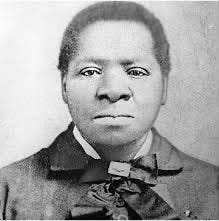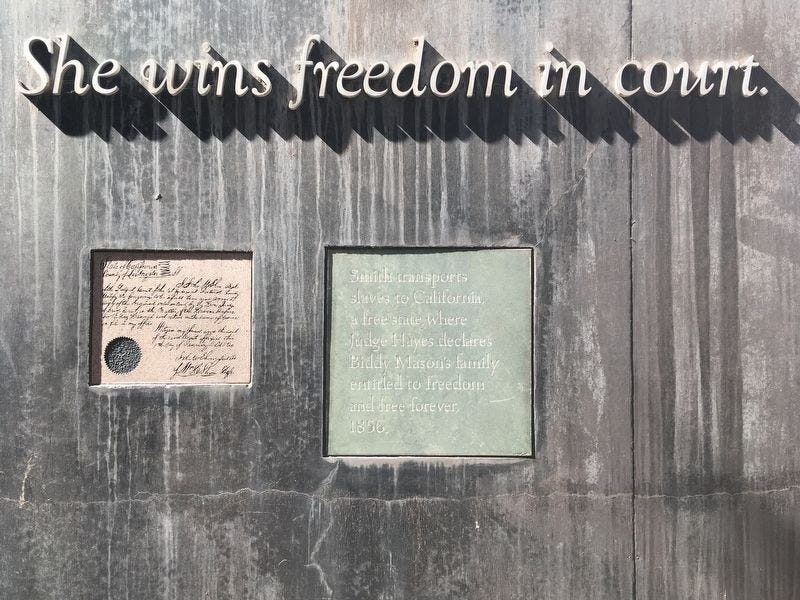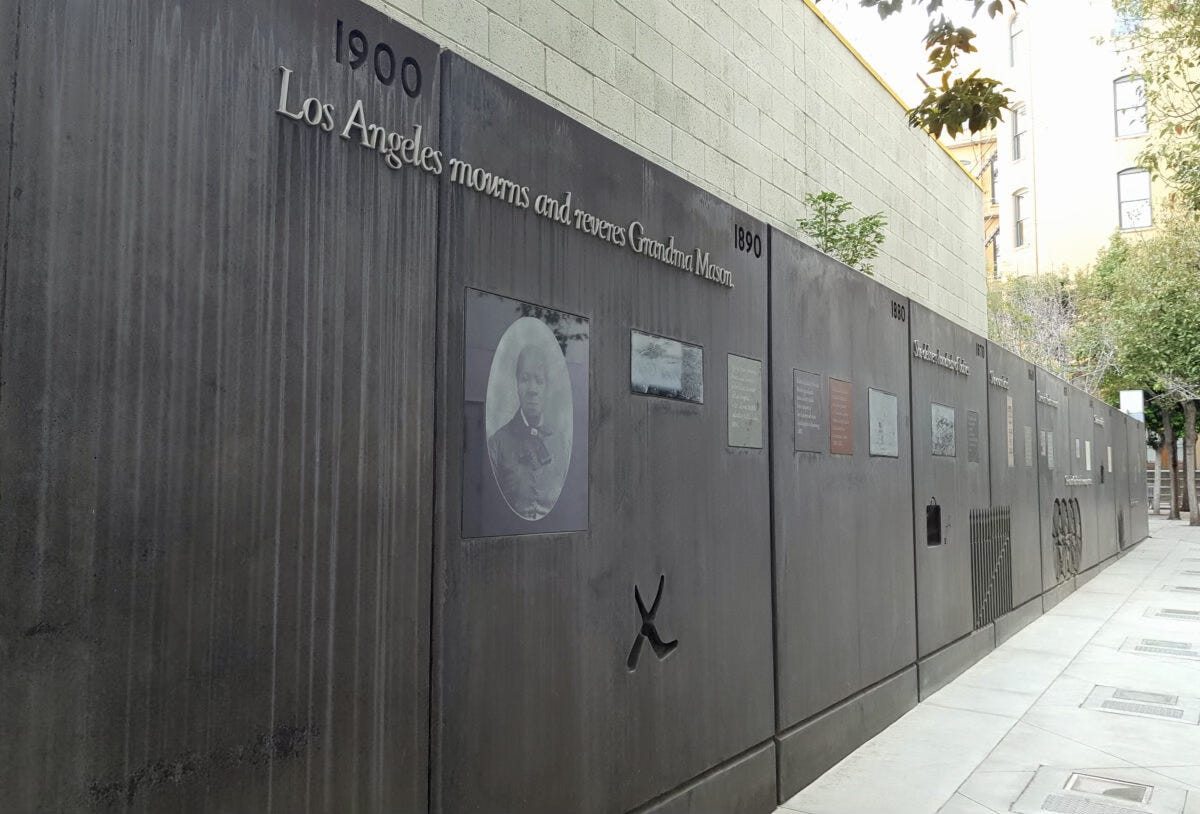HISTORY: How Bridget "Biddy" Mason Went from "Property" to Property Owner
19th century entrepreneur, community builder and midwife Mason won her freedom in court and became the wealthiest Black woman in Los Angeles.
Though a memorial to her stands on Spring Street in downtown Los Angeles where she once owned several pieces of property, still far too few people know about the life and legacy of entrepreneur and philanthropist Bridget “Biddy” Mason.
Mason was born into slavery in 1818 in Mississippi and is reported to have been taken from her mother as a young child. While growing up down South, Mason learned about herbs and midwifery from older enslaved women, but when her enslaver Robert Smith converted to Mormonism, he decided to move himself and those he enslaved to Utah to join the community there.
Mason and her three children were part of that trek – literally – she had to walk the 2,000 miles behind the wagon caravan, tending to the livestock, her enslavers and her children along the way. After a few years in Utah, Smith and his wife Rebecca Dorn Smith decided to relocate to a Mormon enclave in San Bernadino, California.
Slavery was not legal in California and it’s said the free Black friends Mason made while there informed her of the laws. When Smith had a falling out with Mormon leadership in San Bernadino and decided to move to Texas, he feared his “property” would be taken from him, so he hid them the Santa Monica mountains as he made preparations to depart.
Luckily, Mason’s friends called the sheriff on Smith and said he was enslaving several Black people against their will. The sheriff went and took Biddy, her children and others into what we would now refer to as protective custody until the matter could be sorted out in the courts.
Smith tried to argue Mason and the others were coming to Texas out of their own free will. Even though slavery wasn’t legal in California, state laws at the time stated that no Black or Native American person could testify against anyone white.
So, Mason had no right to dispute her enslaver’s claim that she was moving to Texas willingly. The judge in this case, however, wanted to hear from her, so he took Mason and a few others into his chambers.
There he informed Mason if she did leave with Smith, her children as minors would not be allowed to go, so she would have to leave them in California. That’s when Biddy said, uh, no. She is quoted as saying, “I do not wish to go.”
Mason was granted her freedom. But that’s all. No money, no education, no home. She had her midwifery skills however, and was able to earn money by delivering babies, assisting doctors and employing her knowledge of medicinal herbs.
She eventually saved enough to buy her first piece of property – luckily California was also a state that didn’t have laws against women or Black people owning property. So, Mason bought. And bought. And bought. And then shared her wealth and gave until her dying day in 1891.
Mason’s economic triumphs lead to her equally significant community contributions – a school, a church, an orphanage. She also visited prisoners and nursed the ailing, often for free.
In 1884, when a rainstorm swelled the Los Angeles River, homes were swept away, and many people were left with nothing. Mason, who had recently sold a lot for $2,800, left a standing order at a Spring Street grocery store to give free food to any flood victims -Black or white - who needed it.
Biddy Mason, despite all she went through, was a giver and a community builder and was one of the few Black people in Los Angeles in the 19th century to be able to use state laws to her advantage and build wealth.
Mason eventually built an orphanage, founded Los Angeles’s first Black AME church, and established its first school for Black children.
To quote Mason:
“If you hold your hand closed, nothing good can come of it. The open hand is blessed, for it gives abundance, even as it receives.”
Biddy Mason Memorial Park in Los Angeles honors her legacy as does the Biddy Mason Foundation run by her direct descendants.
To learn more about Biddy Mason, check out the biddymasoncollaborative.com website, laconservancy.org to learn more about Biddy Mason Memorial Park in Los Angeles, read Biddy Mason: Becoming a Leader by Lorin Driggs and Biddy Mason Speaks Up by Arisa White and Laura Atkins and links to sources provided below.
Sources:







❤️🙌🔥